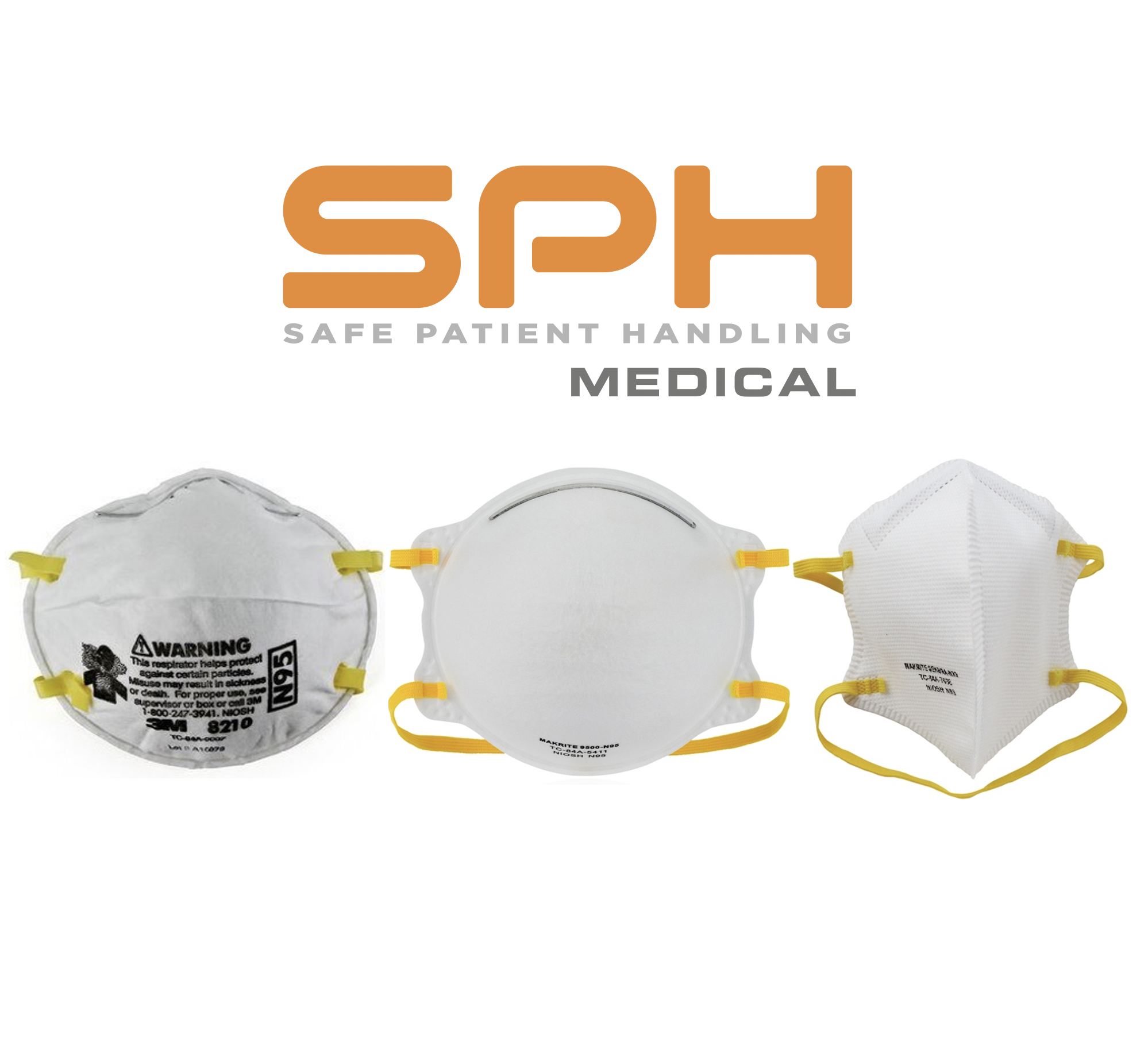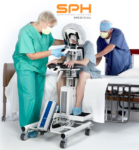On June 17th, Cal OSHA issued an updated COVID-19 Prevention ETS (Emergency Temporary Standards) requiring employers in California to provide N95 Masks for employees that are unvaccinated. The following topics are discussed in the updated ETS. As a result of the updated ETS we are seeing an immediate increase in demand for NIOSH Approved N95 Respirators.
Summary of June 17th ETS.
- Physical Distancing – This is being phased out along with barriers.
- N95 Respirators for employees – Employer must provide access to N95 mask for unvaccinated employees
- Face Coverings – Face Coverings are still required for unvaccinated employees
- Vaccines – Employers must document vaccination status of employees
- Testing – Must be offered at no charge to Employees
- Outbreaks – More protective measures will be required if an Outbreak occurs
- Enforcement – Employers should implement the June 17th ETS as soon as possible to avoid being cited
Here are the highlights of the ETS as it relates to N95 Respirators:
Q: Is an employer’s obligated to provide respirators and to whom?
A: The bottom line is that there are two scenarios that an employer needs to be prepared for: (1) An Employer must provide an N95 respirator to any unvaccinated employee who works with others indoors or in a vehicle and who requests one and (2) If there is a major outbreak the employer must provide an N95 to any employees in the exposed group for voluntary use. The employer must provide a respirator that is the right size and fit for the employee and they must provide basic instruction on how to get a good fit or seal around their face.
Q: Does an Employer have to provide N95 respirators “upon request”?
A: An employer must be able to provide the respirator upon request. The employer can wither keep the N95 masks in stock or they can take a poll of all their employees to determine which employees will need an N95 respirator before they purchase them. Once the employer has determined that it has employees that wish to wear respirators it should make sure that it has enough quantity of masks that fit properly for this group of employees and also consider that respirators will have to be replaced if soiled, broken or contaminated. Employers can also allow employees to purchase their own mask and reimburse the employee.
If an unvaccinated employee asks for an N95 mask at any time, the employer is obligated to provide one.
If there is a major outbreak the employer must offer N95 respirators to all employees whether they have been vaccinated or not.
Q. How soon does a respirator need to be provided after an employee requests it?
A. According to the new ETS employers should estimate their needs immediately and order the required NIOSH Approved N95 respirators to provide to unvaccinated employees as soon as possible.
Healthcare Workers Also Continue to Depend on N95 Masks
While the COVID-19 pandemic is becoming less severe as case counts drop steadily and larger percentages of people become vaccinated from the coronavirus, healthcare workers are still in need of protective equipment to prevent a COVID-19 infection, especially since variants of this virus are spreading worldwide. As such, the NIOSH N95 mask is essential for hospital workers over the coming months.
While there was a severe shortage of health grade N95 masks in the past, now that fewer people in the outside world need to mask up, hospital workers are seeing a more steady stream of the N95 mask in their supplies. This means nurses, doctors, and other healthcare workers will not need to worry about infection risk as much since they won’t need to re-use these supplies.
Who are the hospital workers that are in greatest need of the NIOSH approved N95 respirator? Keep reading to find out.
Hospital Workers are also in Need of This Mask
According to the Centers for Disease Control and Prevention (CDC), surgical N95 respirators are meant only for healthcare personnel who need to be protected from airborne and fluid risks such as splashes and sprays. If N95 respirator masks are not available for use, a face shield can be used instead.
Therefore, any healthcare workers, such as surgeons, physicians, or nurses, who perform procedures on patients that involve transfer of body fluids, particulate matter, and microorganisms need to use N95 respirators, according to the US Food and Drug Administration.
What Different Styles of Masks are in Use Today?
There are several different styles of masks that medical workers use today, such as the cup style mask, a mask with a vertical fold, and a duckbill mask. There are N95 masks in the shape of a cup style, which involves a cone shape.
A vertical fold mask has vertical pleats and can be sewn together by an average stitcher using standard fabric that can be bought at a Michaels store. An N95 duckbill mask poofs out at the front and looks similar to a duckbill.
What is a Surgical Rating for an N95?
NIOSH approves surgical N95 respirators for use as a standard N95 respirator while in the past the FDA approved the respirator as a surgical mask. Recently NIOSH has updated their surgical respirator approval to a more streamlined process. Research has shown that N95 respirator masks have much lower penetration levels of particles in the air when compared to the blue style 3 ply surgical mask.
Having a proper fit across the face, as determined by a fit test, makes a major difference in keeping air particles from infecting the mask wearer.
Who are the Key Manufacturers in this Space?
Some of the top manufacturers of protective equipment and face masks include:
-
- Makrite
-
- 3M
-
- Honeywell
-
- Kimberley-Clark Corporation
SPH Medical is a trusted source for N95 respirators and is a global distributor for Makrite Industries.
The Healthcare Facilities Using N95 Masks
In addition to Hospitals, some other types of healthcare facilities that use N95 respirators that you may not be aware of include long-term care facilities, nursing homes, and assisted living centers, according to the Occupational Safety and Health Administration (OSHA). In particular, healthcare workers who are in contact with a long-term care resident who is suspected or found to have COVID-19 should wear N95 respirators or a higher-level face mask.
New Market Trends
The market trends for N95 respirators positioned the compound annual growth rate (CAGR) of 45.1% from 2020 to 2027, according to a report from Grand View Research. The COVID-19 pandemic along with other infectious diseases led to a significant growth in demand for N95 respirators. North America took up a 32.3 percent share of global revenue in 2019.
Despite the decline in COVID-19 cases, the growth in demand for N95 respirators means there is still a global shortage of protective equipment and these masks, according to the FDA. To mitigate these continual shortages, the US government is taking action such as providing more information about alternative options for protective gear.
US manufacturers have been investing millions of dollars into rebuilding the stockpiles of such protective equipment including masks, isolation gowns, and more. International manufacturing has also played a major role in overcoming these shortages.
The future of the healthcare industry will depend upon N95 respirators and other protective equipment while the COVID-19 pandemic continues to impact the globe.
References:
https://www.cdc.gov/coronavirus/2019-ncov/hcp/checklist-n95-strategy.html
https://www.osha.gov/sites/default/files/respiratory-protection-covid19-long-term-care.pdf
https://www.grandviewresearch.com/industry-analysis/n95-mask-market#:~:text=The%20global%20N95%20mask%20market%20size%20was%20estimated%20at%20USD,USD%206.39%20billion%20in%202020.&text=The%20N95%20mask%20market%20is,USD%2021.57%20billion%20by%202027.
https://www.fda.gov/medical-devices/coronavirus-covid-19-and-medical-devices/medical-device-shortages-during-covid-19-public-health-emergency



